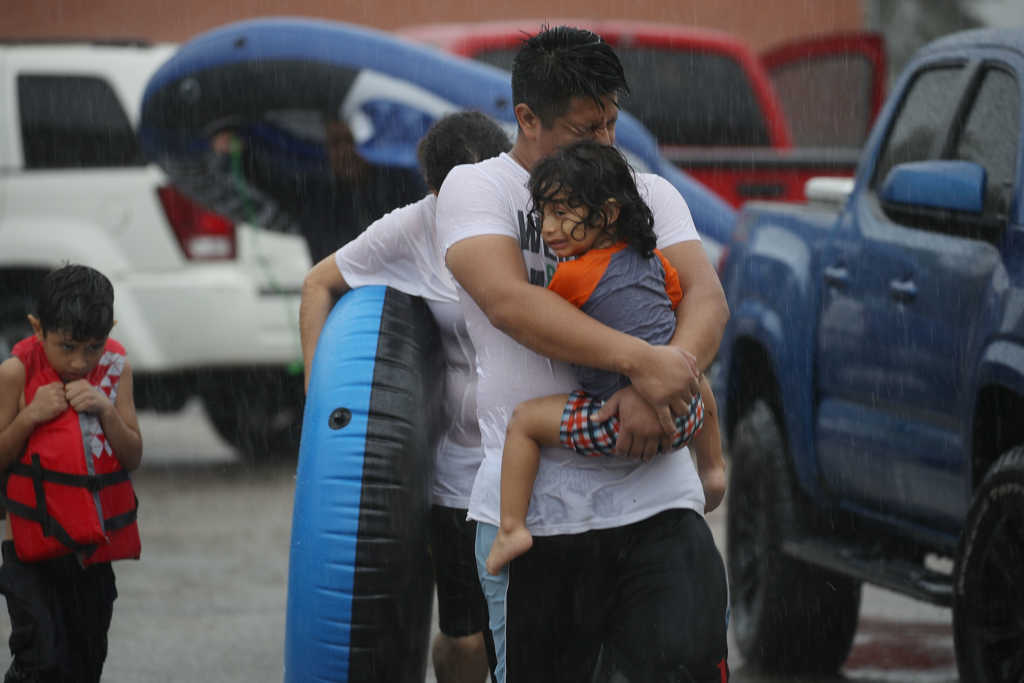“Just shut up.” That was the pointed yet brash response that columnist Leonard Pitts, Jr. had to Christian leaders whom he accused of connecting horrific hurricanes with God’s divine judgement on humanity.
I certainly wouldn’t use that tone in addressing the issue and I haven’t looked at his specific claims about the people he referenced. That said, I will admit that there’s a nagging pain that hits my gut every time a natural disaster strikes and I hear Christians openly acting as the definitive spokespeople of an angry God who they say is sending in deadly calamity aimed at teaching people a lesson — or, at the least, getting their attention.
I often wonder how people can speak so fervently and definitively for God.
But, beyond that, I wonder why, as believers, our first reaction is to sometimes say, “God did this because we [fill in the purported infraction and/or the lesson we think God wants us to learn]” instead of taking a moment to think, ponder and then strike a more reflective tone.
To put it more bluntly: Why aren’t we, as Christians, more focused on the stunning bravery, selflessness and Christ-like compassion that so many people exhibit during and after events like Hurricanes Harvey and Irma?
Why aren’t we seizing upon these examples to show the power of God in action rather than trying to aimlessly predict which laws and social patterns we think led God to send in massive storms allegedly aimed at correcting our behaviors?
It would seem that placing a focus on what can come out of the hurricanes — and not what purportedly caused them — would be a far more attractive and viable way to introduce people to faith.
In the end, that nagging pain I mentioned earlier almost always translates itself into a question that I think every Christian must ask him or herself: Why aren’t we simply comfortable sometimes saying, “I don’t know” when it comes to trying to make sense of the confounding events and illnesses that can shake and rattle our lives?
It’s unnerving that so many of us assume we must always have an explanation — and some of us are willing to make definitive proclamations without fully knowing the reasons why God has allowed certain things to happen.
While Pitts was a bit more forward in the framing of his push for silence and I don’t advocate using his tone, there is some merit there, at least when it comes to a 30,000-foot level.
Rather than blaming God and scaring everyone into a definitive proclamation that he sent the storms to teach us all a lesson, perhaps it’s better for us as non-omnicient creatures to focus on how the events — however and why-ever they were allowed to happen — were used by God to bring people together.
To be clear: I’m not saying that God doesn’t use events and happenings to get our attention; I am, however, questioning the language and rationale that follows these tragedies, particularly when it comes to behavior and commentary that makes it seem as though some Christians know every detail of God’s heart, will and decision-making.
And listen, I’m not downplaying anything here. The relationship between God and natural disasters is clearly a complicated one, as Dr. Erwin Lutzer explains:
One thing we have to remember is that the world is fallen. The Bible says that when man fell into sin, all of nature was cursed. In other words, it was impossible for a sinful man to live in a perfect environment of paradise, so all of nature is cursed.
But having said that, it doesn’t mean that God has a hands-off policy when it comes to natural disasters. Many people want to protect God from the clear teaching of the Bible, which shows He is involved in natural disasters. It is not that God causes them, but the very fact that He could prevent them shows that we need to face squarely the fact that natural disasters happen within God’s providence.
Let me give you a few examples. During the time of the plagues in Egypt, clearly God sent those plagues. Then you have the time of Noah; the flood obviously was sent by God. It says regarding Jonah, God hurled a storm into the sea. We must see God in natural disasters. The question, of course, is why does he allow them and what is there to be learned.
But, in the end, perhaps it’s best to use common sense when addressing natural disasters, especially when speaking with non-believers — that is, if we really want to point people toward the Almighty.
For more on simply saying “I don’t know” when it comes to these issues, see what Pastor Greg Laurie had to say.



